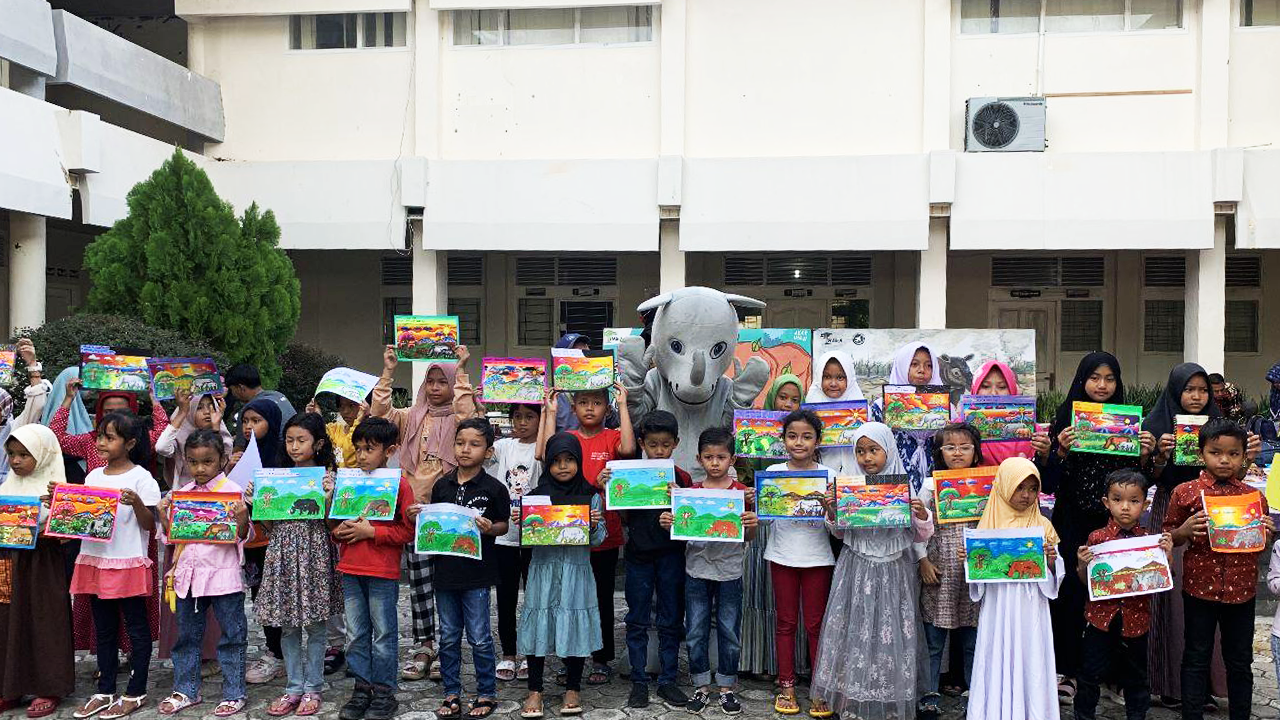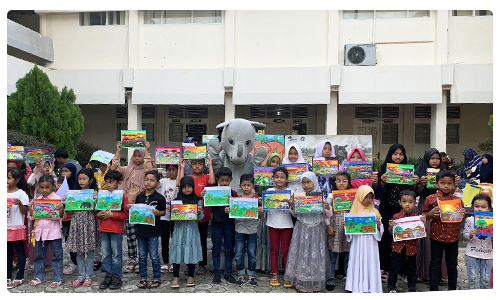Empowering Conservation through Early Education: Building Love and Responsibility for the Leuser Ecosystem Region

This blog was written by IRF partners in Indonesia
One of the few remaining habitats of the critically endangered Sumatran rhino is the Leuser Ecosystem (LE) in Aceh province of northern Sumatra. Home to not only rhinos, the Leuser Ecosystem is a vital habitat for other wildlife including Sumatran tigers, elephants and orangutans. However, habitat loss from plantation development, logging and human encroachment, as well as poaching, threaten the survival of rhinos and other wildlife in the area.

Since 2017, a local Acehnese nonprofit organization, the Yayasan Forum Konservasi Leuser or FKL, with support from the International Rhino Foundation (IRF), has worked closely with the government of Indonesia and Gunung Leuser National Park Authorities to prevent the extinction of Sumatran rhinos and ensure that the rhino population in the Leuser ecosystem can grow and thrive.
FKL utilizes a variety of tactics to protect wildlife in the Leuser ecosystem, including conservation education programs.The conservation education efforts carried out by the FKL education team are crucial in increasing awareness and love of the younger generation for the Leuser Ecosystem (LE) and the importance of preserving it. Through activities such as school visits, time spent in villages for social outreach and other programs, the aim is to increase the awareness of the essential role of conserving LE for the sustainability of human life to students and rural communities.
FKL’s School Visit program is an initiative where FKL’s education team visits many schools – 62 to date – and provide students with the opportunity to understand, learn and receive direct information about LE. This way, students can directly witness the beauty and uniqueness of the region and learn about the positive impacts of conservation efforts. Village and community social outreach are also an effective activity to raise awareness among rural communities about the importance of preserving LE. By conveying information directly and interacting with the communities, FKL’s education team can encourage them to actively participate in preserving the environment around them.

The field trips to research stations within LE offer a rare opportunity for students and communities to receive an in-depth understanding about the ecosystem. Through direct field experiences, they can gain a better understanding of various flora and fauna as well as the functions of the ecosystem that support life. Additionally, the Green School Program implemented at SMK Negeri 1 Trumon Timur, a local school, is also a highly positive step. Through this program, students are not only provided with knowledge about the importance of preserving LE but are also actively involved in real actions, such as tree planting and organic gardening. By participating directly in these activities, students can feel empowered in their role as agents of change in preserving the environment.
The hope is that through these early conservation education activities, the younger generation and the communities around the Leuser Ecosystem will become increasingly aware of the importance of shared responsibility in preserving this region. The more people involved in preservation efforts, the greater the chances of success in maintaining the Leuser Ecosystem’s sustainability, creating a balanced relationship for both humans and wildlife to survive and thrive in the future.
